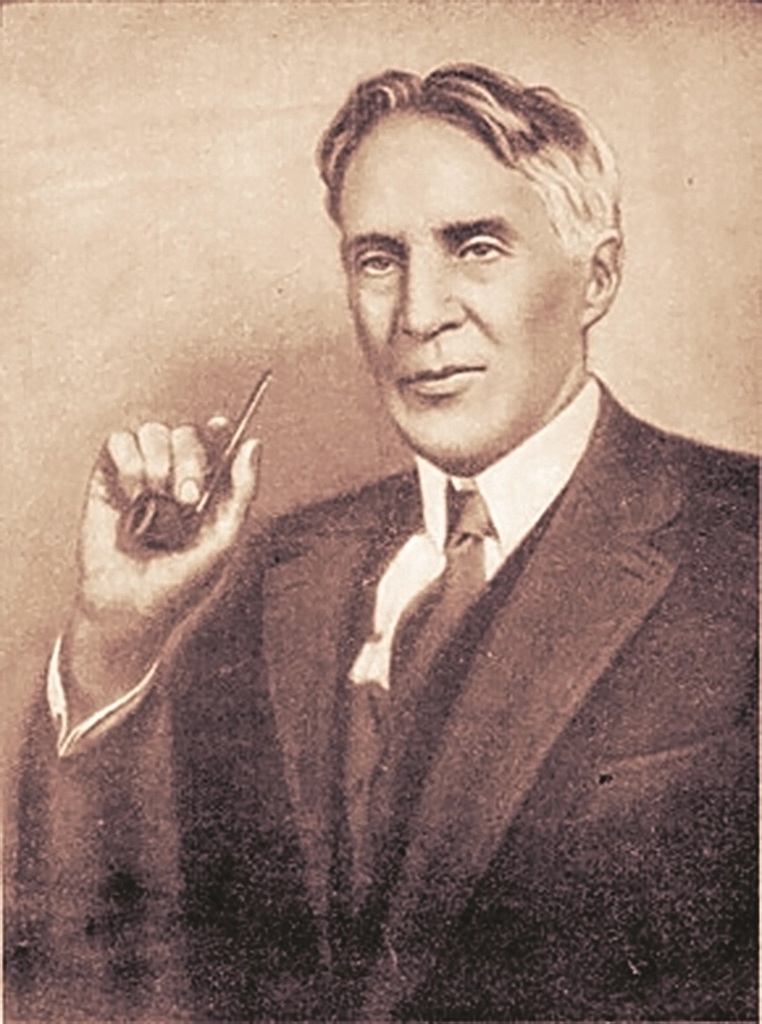R.W. Wood
R.W. Wood

Robert Williams Wood (born 1868) studied at Harvard University followed by graduate studies at Johns Hopkins and the University of Chicago, until receiving his next degree from the University of Berlin where he studied physics.
His first teaching position was at the University of Wisconsin from 1987-1901. As a result of his success there, he was offered the position of Professor of Experimental Physics at Johns Hopkins after the death of Henry Rowland. He remained in this position until 1938 when he was named Research Professor of Physics.
Wood’s best known contributions were the line and continuous absorption of sodium vapor, fluorescence phenomena, particularly the discovery of the resonance radiation of gases and vapors and the influence of foreign gases and magnetic fields on such phenomena. He also contributed to the development of x-rays, photography, meteorology, archeology, explosives, and acoustics.
His greatest contribution to physics, however, was his perfection of the art of ruling diffraction gratings. The improvements he made to Rowland’s original machine made the continuous flow of gratings from his lab possible and made it the only source for these parts of the spectrograph. Wood invented the echelette grating, experimented with replica gratings, and modifying the sizes of gratings that were possible.
Wood wrote Physical Optics in 1905, which included some of Wood’s personal experiment logs, thus setting the book apart from anything else available. The book was met with such success that he was working on a fourth edition at the time of his death.
Wood was in high demand for his practical inventions as well, and became known as a “scientific detective.”
Wood held honorary degrees from Clark University, U.S., Oxford University, U.K, University of Birmingham U.K., the University of Edinburgh, U.K. University of Berlin, Germany, and Johns Hopkins University, U.S. He was an honorary member of the Royal Society, the Accademia dei Lincei, the Leningrad Academy, and the Royal Swedish Academy, among many others. Wood received the Rumford Medal of the Royal Society and the Frederic Ives Medal. He was elected an Honorary Member of OSA in 1944.
Wood died on 11 August 1955.
Document Created: 26 July 2023
Last Updated: 28 August 2023
